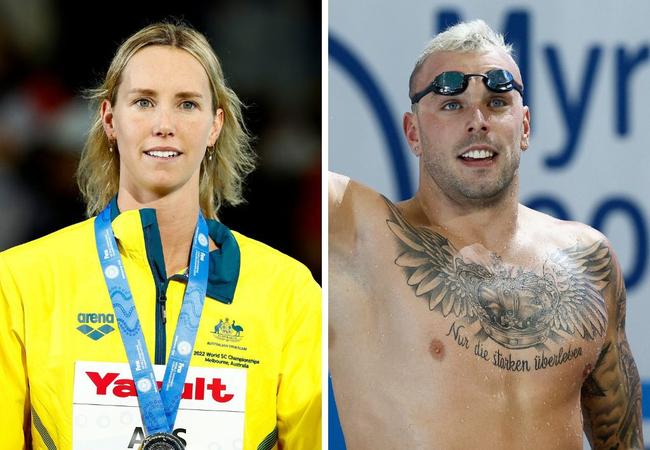Big-money setback for Australian swimmers as rebel league loses watershed case
Australia’s cash-strapped swimmers have taken another hit after the rebel professional league – likened Kerry Packer’s revolution of cricket – lost a watershed decision.

Australia’s cash-strapped swimmers have taken another hit in the pocket after the rebel professional league that promised them unprecedented prize money and a bigger say in how their own sport is run has just lost a watershed court case in the United States.
In a judgement made public by the US district court in northern California, the presiding judge dismissed the lawsuit by the International Swimming League (ISL) alleging the sport’s world governing body FINA had breached antitrust laws by using unreasonable restraint of trade.
Now known as World Aquatics, FINA’s newly elected president Husain Al-Musallam welcomed the ruling, saying: “This is an important decision and also a good decision, not just for World Aquatics, but for the Olympic Movement and beyond.”
The many swimmers who backed the rebel league and advocated for overdue change may disagree.
Dozens of top Australian and big-name international swimmers eagerly signed up and duly competed in the first two seasons, while at the same time throwing the sport into uncharted waters as ISL commenced legal action against FINA.

ISL also alleged the sport’s bosses had threatened to punish anyone who joined the breakaway league – a claim that was rejected by the US District Court – but for many swimmers, standing up against the establishment was regarded as a badge of honour.
ISL is currently on hold because of the conflict raging in Ukraine and it is uncertain whether it will ever resume. Some competitors have complained that they were still waiting for cash payments they were owed but did not receive on time.
Whatever happens, ISL did still play a major role in disrupting the sport’s status quo – forcing FINA to change its leadership and commit to major reforms – including giving more money to competitors.
New executive Director Brent Nowicki said: “This was, and always has been an avoidable controversy. We look forward to putting it behind us, as we look forward to delivering an exciting calendar of opportunities for all aquatics athletes, to whom World Aquatics remains deeply committed.”
Even so, the failed lawsuit will still come as a blow to the many Australian swimmers who have grown wary of some out-of-touch administrators – not only internationally but also at home.
At the same time the ISL was getting off the ground, Australia’s best swimmers and coaches publicly backed a proposal for their own domestic competition – known as the Australian Swimming League (ASL).

Set up in 2020, the made-for-TV national competition promised to promote the sport and bring much-needed money into competitors’ pockets and had the support of Swimming Australia, which even signed an agreement for the new competition to begin, only to later announce the deal was off.
The matter remains the subject of ongoing legal proceedings but the frustrations for Australia’s swimmers continue unabated.
Although the star-studded Dolphins are among the best in the world, many household names are still struggling to make ends meet because Swimming Australia relies heavily on taxpayer funding.
Despite the team’s success and popularity, Swimming Australia still does not have a major sponsor after losing Hancock Prospecting, nor a free-to-air television partner.
The Victorian government secretly gave Swimming Australia $9 million to stage last month’s short-course world championships in Melbourne, while philanthropist Gina Rinehart deposits much needed funds from her Hancock Prospecting foundation directly to competitors instead of through Swimming Australia.
Just last month, Swimming Australia agreed to an urgent review into the way the sport is being managed after frustrated member organisations spoke out about the current executive leadership.





